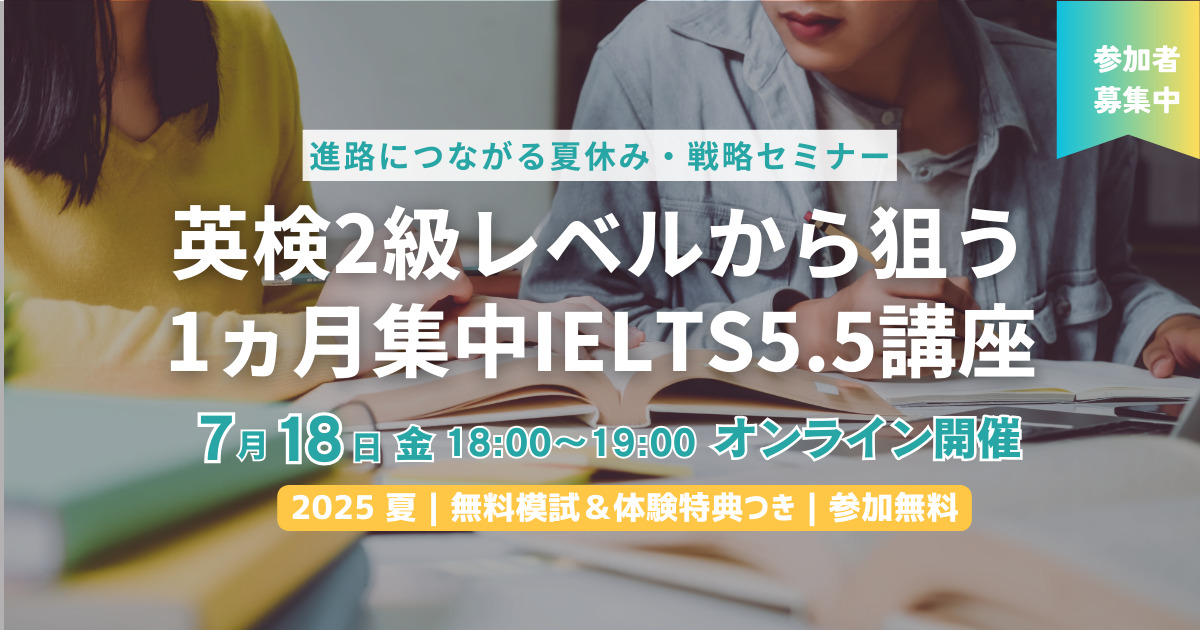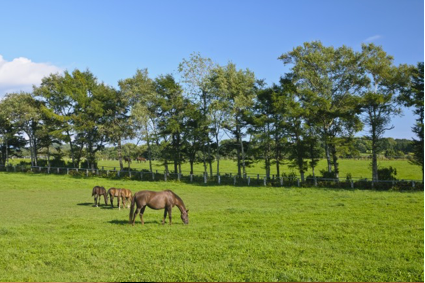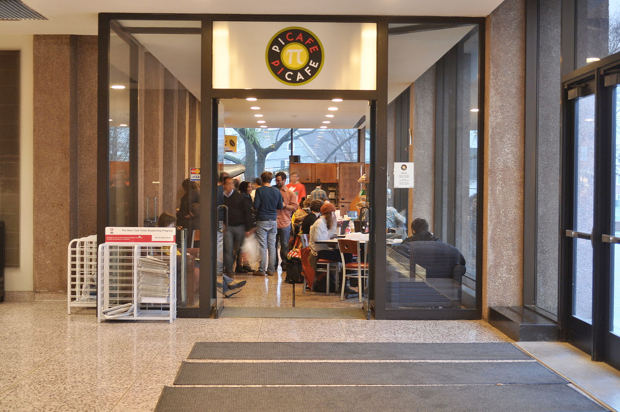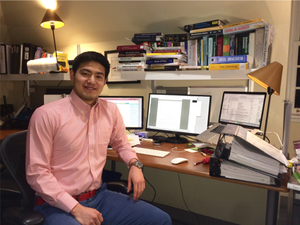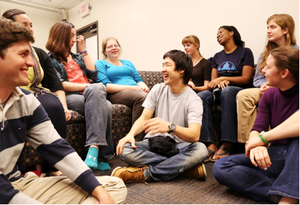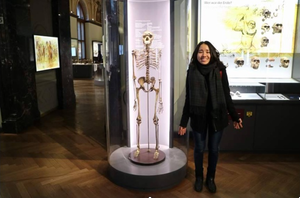【リベラルアーツ03】タフな環境が鍛える「生き抜く力」…リベラルアーツ教育はいかに役立つか
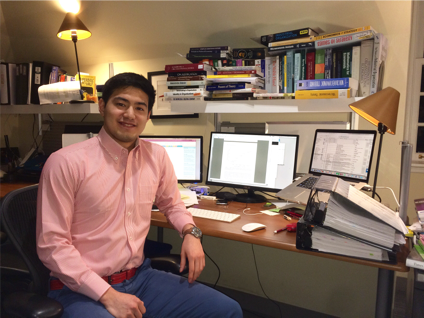
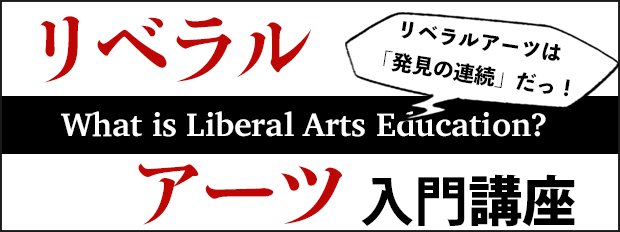
- 【リベラルアーツ入門01】鉛筆からはじめるリベラルアーツ
- 【リベラルアーツ入門02】リベラルアーツで身につける思考法
- 【リベラルアーツ入門03】リベラルアーツ教育を受けた後の変化
- 【リベラルアーツ入門04】日本の高校生とリベラルアーツ
- 【リベラルアーツ入門05】大学を終えたあとの学びの実践
卒業生が語る「リベラルアーツ教育」その後
季節外れの台風が毎週のように訪れ、気候変動がますます実感される最近の日本ですね。
さて、リベラルアーツ入門講座も第3回になります。これまで、リベラルアーツ教育の「コアにある哲学」や「批判的思考」を紹介しましたが、今回はウェズリアン大学の卒業生である武田悠作さんをお呼びし、大学時代や卒業後の話を伺いました。

武田さんは現在、ハーバード大学経営大学院(ハーバード・ビジネス・スクール)の博士課程に在籍しています。
武田さんは大学院生ながら、すでに共著で「Global Strategy Journal」に論文を発表し、経営学者としての実績を積み上げています。ハーバード大学を卒業後は教授職に就くそうです。
* * *
青木:まずは自己紹介をお願いします。
武田:武田悠作です。北海道・新ひだか町出身で、札幌の「北嶺中・高等学校」を卒業しました。「ウェズリアン大学」にフリーマン奨学生として進学し、社会科学部を専攻し、現在は「ハーバード・ビジネス・スクール」の博士課程に在籍して、マクロ組織行動を研究しています。
青木:「マクロ組織行動」とはなんでしょうか?
武田:マクロ組織行動では、「組織はなぜ存在しているか」ということを研究します。ミクロは集団のなかで個人がどう行動するか、また組織における個人のモチベーションの問題を扱ういっぽう、マクロは集合体に焦点を絞り、組織という集合体が外の環境や他の組織からどう影響を受けるかの学問です。
青木:大学卒業後は何をしていましたか?
武田:ニューヨークで半年ほどコンサルティングの仕事をやりましたが、これは自分のやりたいことではないと思い、辞表を出して東京に来ました。東京では、「一橋大学大学院」で知識経営の生みの親として知られる野中郁次郎教授の研究助手をしました。
「疑問」を突き詰め、選んだ進路
青木:北海道からアメリカの、しかもリベラルアーツ大学に進学することとなった経緯を教えてください。
武田:リベラルアーツ大学への進学は偶然でしたね。もともとは理系で、将来は研究職につきたいと思っていました。
父親の家系は経営者だったので、「社会に接点を持って研究をしたい」という漠然とした将来像を持っていました。農業の実学的な面に惹かれていたので、高校を卒業したら東大か北大で農学を勉強しようと考えていました。
青木:なぜ、そこからアメリカに行きたいと思ったのですか?
武田:ふたつのきっかけがありました。まず、高校の恒例行事で東京の大学見学があり、この行事中、東京大学の静かな教室で教授が淡々とテキストを読み上げ、生徒たちが受動的にノートをとる光景に出会いました。
熱量に欠けた雰囲気を目の当たりにし、「自分はこの場所で4年間勉強したいのか?」という疑問が生まれましたが、これは東京大学に限ったことではなく、日本の大学全般に共通していることだと私は知りました。
そして北海道に戻ったあと、姉妹都市のケンタッキー州との国際交流イベントがあり、アメリカから来たゲストに私の農業への興味を話すと「ケンタッキーの大学に来ればいい」と言われました。アメリカの大学の魅力を聞き、とてもワクワクしましたが、そのときは「日本の大学にとりあえず入学して、交換留学か大学院で行きたい」と返事をしました。
帰り路のバスのなか、ふと私は思いました。「なぜ日本の大学に入学してからと言ったのだろう?」。東大での光景を思い起こしながら、私は「日本の大学に行くという選択は、学校や社会による刷り込みに違いない」と結論づけ、自分でも大胆ながらアメリカの大学に進学することを決めました。
青木:リベラルアーツ大学を志望した理由はなんでしょうか?
武田:1冊の本がきっかけです。アフリカの井戸に関する本で、援助のために作られた井戸が、時間と共に人びとに使われなくなってしまった例を紹介していました。
どれだけ新しい技術や研究成果であっても、人びとの慣習や文化を理解しなければ、現実に応用することはできません。その技術や製品を使うのは人間だからです。
応募する予定だったアメリカの州立大学の農業プログラムを見ていると、人間的側面の教育が抜けていました。技術的な側面を学ぶ前に、人間に関する教育を受けたいと思い、リベラルアーツ大学への志望に切り替えました。
ウェズリアン大学で受けた衝撃
青木:ウェズリアン大学にフリーマン奨学金を得て合格し、2010年に進学したわけですが、進学当初に衝撃を受けたことや印象に残っていることを教えてください。
武田:日本で当たり前だった考え方、社会的に常識とされている価値観や物の見方が吹き飛ばされました。たとえば「トイレ」です。
ウェズリアン大学は寮の施設に「gender neutral」を掲げていて、トイレやシャワー室が男女別ではありません。いまでは日本でも知られるようになった考え方ですが、当時の私には新しいものでした。
頭では理解できても、使用のたびに異性にトイレで出くわすのには驚きを隠せませんでしたし、このトピックを真剣に議論をしている寮の仲間たちに耳を傾けていても、自分がこれまで考えたこともなかった事柄ゆえに言葉が出てきませんでした。
また、学生がみんな本当に真面目に勉強していたのも驚きでした。授業中はもちろんですが、カフェや寮でも勉強している内容を真剣に語る人たちがいるのがウェズリアン大学でした。
対して、日本の高校や大学では、真剣に勉強することは恥かしいものだという風潮が私が生徒のときにはありました。いかに「頑張っていないふり」をしながらいい成績をとるかで競い合い、勉強している内容を熱心に話し合う光景は稀だったと記憶しています。
私の卒業した高校は進学校だったので勉強の価値は認められる傾向がありましたが、それでも上記のような文化の例外ではありませんでした。ウェズリアン大学では真剣に勉強しているのをカッコイイとする風潮があり、「まじめに勉強をやっていいのか」と衝撃を受けました。
タフな環境が鍛える「生きる力」
青木:その環境で、武田さんはどのように変化をしましたか?
武田:そうですね、ふたつの段階がありました。1年目における「社会的文化的な環境への適応」と、2年目からの「学問的な訓練」です。
進学当初の驚きはありましたが、私のウェズリアン大学への適応は早く、楽しい毎日が過ぎました。私の寮には留学生が少なかったので、アメリカ人と交流しながら、社会的文化的な面での適応をスムースに済ませました。
週末のパーティーや新しい文化的娯楽を満喫しつつ、最低限の努力で求められているレベルをクリアするという態度で授業に臨みました。素晴らしい成績ではありませんでしたが、そつなく1年目を終えました。
これが2年目には変わりました。ウェズリアン大学の社会科学部は2年次からはじまり、学内ではもっとも厳しいカリキュラムとして知られています。「College of Social Studies」という正式名でしたが、「College of Social Suicide」と学生は呼び、勉強以外の時間がなくなる悪名高い学部でした。
偶然選んだ社会科学部で、私は予想以上に苦戦しました。トマス・ホッブスの『リヴァイアサン』の1冊が最初の読書課題となり、膨大な課題の量と難解な内容に、ただついていくのが精一杯でした。
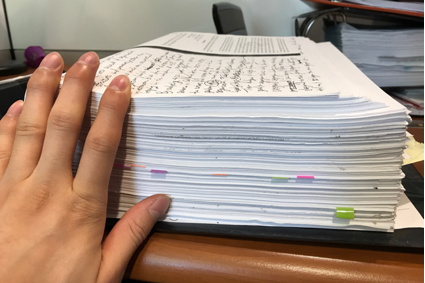
このとき、私ははじめて哲学の本にも触れました。2年次では社会理論を扱い、ニーチェの『道徳の系譜』やルソーの『不平等の起源』などの哲学書をつぎつぎと読みました。哲学を通して自分の常識を徹底的に疑い、その結果、批判的思考の副作用ともいえるニヒリズムになったのもこの時期です。常識を疑い続ける先に、「何を信じればいいのだろう」という問いが頭のなかに残りました。
そうして2年次の終わりに、1年間の勉強した成果を図る、口頭試問と筆記試験がありました。数日間で論文を書いて、その内容を教授たちの前で発表して討論するというものです。自分なりに準備はしたものの、結果は惨敗。原因は明らかに勉強不足にありました。
この挫折の経験を経て、「最低限の努力で求められているレベルをクリアする」という態度から、「目の前の課題に自分のすべてを注ぎ込む」という姿勢に変わりました。常に自分の能力以上のものが求められる環境でしたから、出し惜しみをしていては太刀打ちできません。
こうして3年次から心を入れ替えて勉強して、4年次には社会科学部でも一目置かれる存在にまで成長しました。
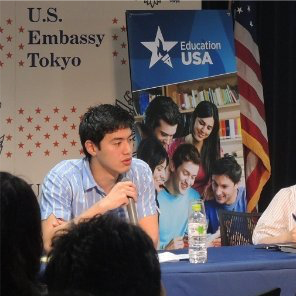
大学での学びがすべての基礎に
青木:武田さんは現在、ビジネススクールというビジネスに特化した大学院に在籍していますが、大学時代の経験や教育はどのように活きていますか?
武田:そうですね、私の現在に関して言えば、ウェズリアン大学での教育がすべての基礎になっています。
読み、書き、話すという基礎的な能力が大学で徹底的に鍛えられました。もちろん、いまでもこの能力を向上させていくかを毎日のように模索していますが、ウェズリアン大学の厳しい環境で学んだことにより、その後も自分で改善していける基礎ができました。
また、ハーバード大学院で学ぶ同期生とくらべて(学部時代から金融やビジネス、専門的な学びをした人たち)、深い部分まで見ることができているという実感があります。ウェズリアン大学では、政治的、哲学的に物事を考えるのがカッコイイことだとする風潮があり、友達同士で集まって密な議論になったときも、技術的な話よりも大局的な視点が中心となっていました。
何に使われるか現時点ではわからないものの、個人の興味や発想を自由に探究できる文化でした。目的を第一とした職業的な教育にはないような、自由かつ深い思考方法が培われました。
リベラルアーツ教育はいかに役立つのか
青木:私たちが受けたようなリベラルアーツ教育は、一般の人びと(学者でない人びと、例えばビジネスマン)にどういう意味を持ちえるのでしょうか?
武田:批判的思考がビジネスに役立つ点もありますが、なによりも大事だと思うのは「自分の人生を俯瞰する目線」です。
卒業してから数年が経ち、私の大学時代のクラスメイトも自分のキャリアを歩んでいます。そのなかで、毎日の仕事や生活からは少し距離を置いて、根本的なところで「自分の人生とはなんなのだろうな」と俯瞰できる人たちが多いのです。
これは、自分は何が好きで、何がやりたいかを正直に真剣に探究できる大学の環境にいたからでしょう。また、既存の価値観に支配されず、物事を批判的に考える思考は、自分の人生にも当てはめられるものです。
もうひとつ、集団的思考から自分を防衛することができるのがリベラルアーツ教育です。私たちの歴史や現在の政治的状況が示すように、集団的思考はものすごくエネルギーの強い、おそろしいものです。ナチス・ドイツや北朝鮮、またはトランプ政権。共通点は、外部から与えられた考え方や信条をそのまま取り込んでしまうメカニズムです。
この大きな強いエネルギーの一部に取り込まれると、自分ではその状況に気づけないものです。それほどに自分自身の価値や信条に意識的、また批判的になるのは難しい。いろんなアイディアを自分なりの視点で評価し、取捨選択するというのがリベラルアーツ教育で身につけられる、集団的思考に対する防衛法だと思います。
選ぶべきはリベラルアーツ教育なのか
青木:最後に、中高生へのメッセージをお願いします。
武田:自分の決断は自分でしましょう。当たり前のようですが、難しいことです。
たとえば、日本の大学に行くのが当たり前だから、両親や教師が言うから日本の大学に行くのではなく、また、アメリカの大学に行くのも、グローバル時代で英語が必要だから行くのではなくて、すべての要素を加味して「自分」がどの道を選びたいのかを考えてください。
世間が押し付けるイメージを文字通り受け取るのではなく、自分がする決断とその理由にどこまで正直になれるかが重要です。常識を疑うことから始めるのがいいかもしれません。
また、すべての人がリベラルアーツ教育に向いているわけではありません。リベラルアーツ大学に進学すると、どんな勉強をすることになるかわからない、どんな友達ができるかわからない、「わからない」に溢れた未来が待っています。
自分の予想していない出来事を肯定的に捉えられる、好奇心旺盛な人がリベラルアーツ教育に向いているでしょう。勉強面で環境に左右されやすい人も、リベラルアーツ大学がいいかもしれません。
しかし、当然ながらリベラルアーツ教育は単なる選択肢ですので、総合大学で早くから専門を絞った教育をする利点もあります。どちらがワクワクするか、自分の将来なりたい人物像につながるかなどを加味して決めるといいでしょう。
青木:ご協力いただきありがとうございました。
* * *
私は大学時代から武田さんを知っており、大学時代も卒業後もいい刺激をいただいてきました。
武田さんの特筆すべき資質としては、その「正直さ」にあると思います。日本の大学に行かなければならないという「当たり前」を高校時代からすでに疑い、その後も「自分」を基点に考え、決断をしてきました。
「こうしなければならない」という教師、親、また常識の声はときとして強いものですが、それを疑い、「自分」の考えや気持ちに正直になることは、大学進学以上に人生全般において重要な資質でしょう。
そして、リベラルアーツ教育とその「正直さ」の関係も、武田さんの経験から学ぶことができる点です。もちろん本人の努力もありますが、「大学での教育が今の自分の基礎になっている」と言えるような教育に巡り会えるのは、とても幸運なことでしょう。
中高生のみなさんも自分の受ける教育について考え、親や教師や世間ではなく、「自分」が誇ることのできる教育を探してみてはいかがでしょうか。
「Liberal Arts for All」主宰。翻訳家、ライター。千葉県旭市出身。中学高校時代は陸上競技の世界に浸かり、勉強に縁のない場所で生きる。高校卒業後に入学した千葉大学で、日本の大学教育、教授、学生に不満を覚える。資格をとれる学部に移ろうと、医学部再受験をするために予備校に通い始め、そこで勉強する楽しさを知る。興味が多岐にわたっていたため、このまま医者になるのはどうなのだろうかと考えはじめる。夏に開催されていたアメリカの大学合同説明会に参加し、リベラルアーツ教育について知る。そこから3ヵ月間猛勉強し、最終的にウェズリアン大学にフリーマン奨学生として合格。ウェズリアン大学では哲学を専攻し、芸術、歴史、文学、社会学などの授業を幅広く履修。卒業後は米系の投資運用会社に就職。4ヵ月で投資運用会社を退職し、その後に出版社やバーの皿洗いを経て、現在は翻訳を本業とする。
